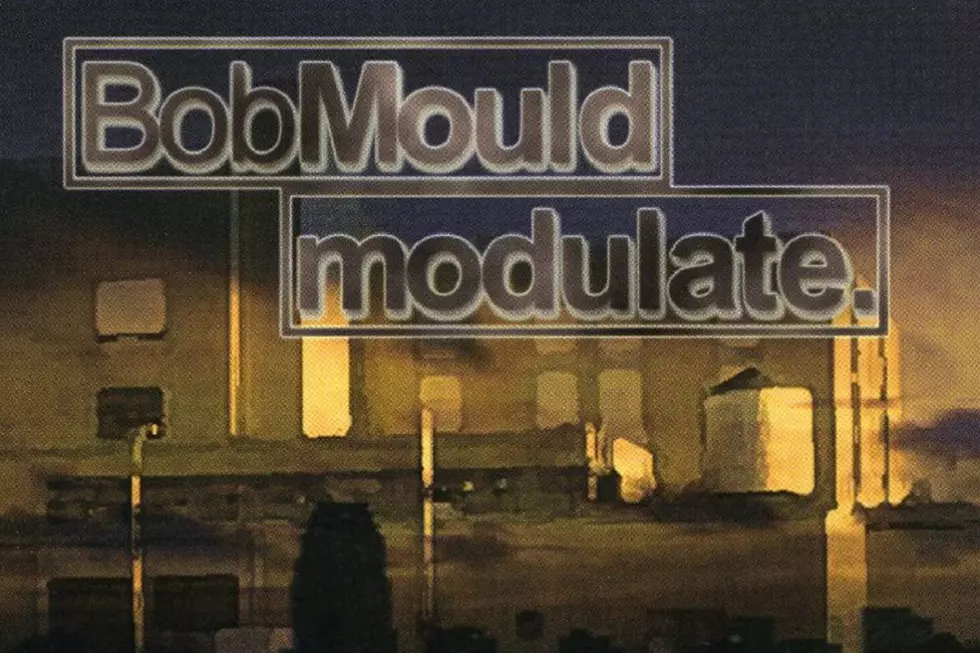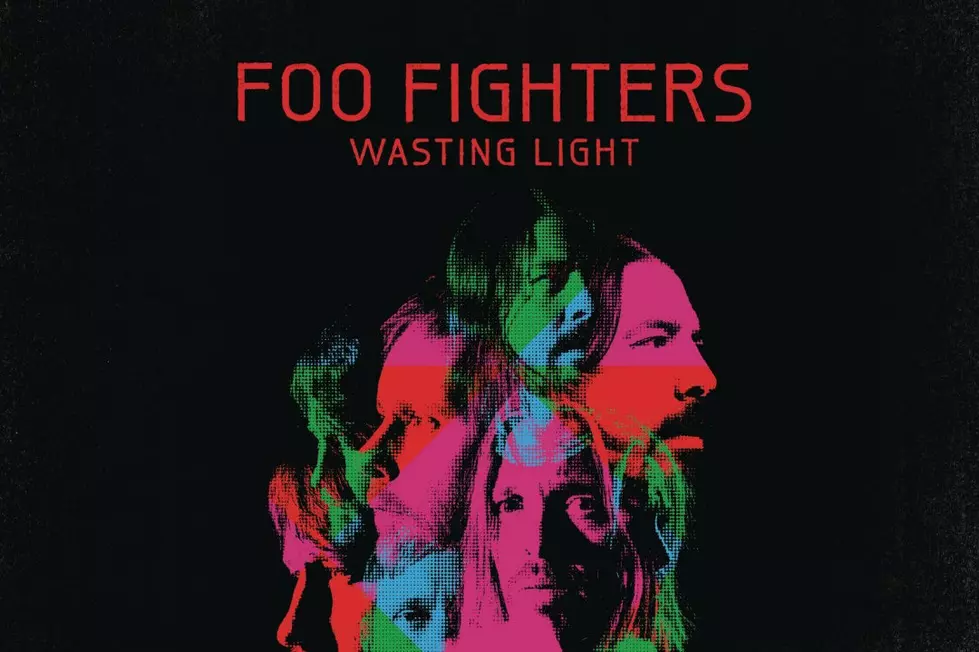25 Years Ago: Bob Mould Finally Finds Deserved Commercial Success With Sugar’s ‘Copper Blue’
Bob Mould took a different path after the dissolution of post-punk legends Hüsker Dü, memorably releasing an acoustic-based solo debut in 1989's Workbook. Then Nirvana arrived. He said he knew, right then, that guitar records were back.
Mould quickly formed Sugar with bassist David Barbe and drummer Malcolm Travis, releasing Copper Blue on Sept. 4, 1992.
"Music is such a circular thing. When Nevermind came out, that album changed the way people listen to music," Mould told NPR in 2014. "A lot of the songs that I had been writing in 1991 led up to my next group, Sugar — and had it not been for Nevermind, I don't know if Sugar's Copper Blue would have stood a chance in '92. But people were now receptive to this sound."
Constructed in the same power trio image as Hüsker Dü, Sugar instead leaned more toward power pop – extending Mould's underground legend into a new arena and into a new generation. What it wasn't, Mould insisted at the time, was "alternative."
"I think alternative music is anything I don't like," he told the Los Angeles Times in 1992. "We play pop music – we're a pop band. I think there's only good music or bad music. I mean, is Madonna alternative to Michael Bolton, who is the alternative to Pavement?"
This sunburst of hooky joy, however, followed a very dark period. Mould was coming off a failed personal relationship, and a failed professional one. A recent separation from his manager revealed that he'd signed away Mould's publishing rights without permission. A split with Virgin Records followed, leaving Mould to toil through a rigorous – but financially necessary – nine-month solo tour in 1991.
As he averaged some 300 miles of driving a day, Mould had lots of opportunities to jump start his creative impulses. Something he once called a "lonely and inspiring" experience led to "plenty of time for reflection," and then to these new songs.
Then came an appearance at an outdoor festival in Germany before some 7,000 people – all of whom, it seemed, where there to see Nirvana. On the verge of releasing their breakthrough Nevermind, Mould admitted that Nirvana "customarily trashed the joint." Mould had the bad luck to follow them.
"Pounding away on a 12-string acoustic by myself at an outdoor festival in the middle of the afternoon was no easy feat," Mould told Jeff Boehlis in 2011. "Nirvana destroys the stage, then it’s me carrying on like Richie Havens at Woodstock."
Change was in the air, and Mould was deeply aware of it. You could, of course, draw a straight line from Hüsker Dü to Nirvana. The time for a return to the outsized energy, the riffy focus and even the format of Mould's critically acclaimed but always commercially overlooked first band seemed to have finally arrived.
Listen to Sugar Perform 'A Good Idea'
"The success of Nevermind re-tempered the ears of the listeners throughout the world," Mould told NPR. "It was a heavy, punky record, but there was something about it that was so accessible that it opened up all these pathways for other musicians — myself included — to have our music heard."
Sugar's songs, once envisioned as solo performances, took on new life with the arrival of Barbe and Travis, and they immediately started feeling like a real band, Mould said. Sugar selected their name in the most off-the-cuff manner possible, while sitting inside a Waffle House at Athens, Ga. where the band spent some time working out their emerging sound in R.E.M.'s practice space. "We got a big pot of coffee and banged out about 24 songs," Travis told the Daily Collegian in 1992.
Mould was right; their timing was perfect. "Helpless" hit No. 5 on Billboard's modern rock charts; "A Good Idea" – which Mould has said was "an unconscious homage" to the Pixies' "Debaser" – became a fan favorite, too. Free of so many lingering worries, tracks like "Hoover Dam" (a triumph of jangly optimism) simply came tumbling out.
“It was this dream song that just turned up as I was waking up one morning,” Mould said of "Hoover Dam" in a 2014 interview with Team Rock. “It came to me fully formed, and then it’s just all the baubles that make it that crazy baroque band thing. All that was pretty much in my head too, but you have to sit down and make these baubles shine. That’s the production stuff.”
Copper Blue did even better in the punk-loving U.K., reaching the Top 10. NME named it Album of the Year, even as "If I Can't Change Your Mind" reached the Top 30 there. "What a fun ride that was. That was like 0 to 100 in about eight seconds," Mould told Moehlis, adding that he was grateful that "I had 13 years of experience under my belt before the rocket got strapped to my ass.”
After all, pressure like that often leads rock stars down rocky paths, since "everybody wants everything all the time." Instead, Mould got to enjoy the ride. “At this point in my life," he said in his autobiography See a Little Light, "I was euphoric.”
Of course, plenty of people began to frame Sugar as a call back to his time with Hüsker Dü. There were, on the surface at least, some obvious similarities. For Mould, however, this represented a brand new start, and a most welcome one – even if he was returning to a tried-and-true trio set up.
"It’s a pretty comfortable spot for me," Mould said in a 2014 interview with Salon. "It’s odd to say ‘comfortable,’ because it’s really a lot of work for me but musically it’s the best way, when I have two other people that I need to connect with. There’s a real clarity and a purpose to it, because everybody knows how much they have to lift at all times. I like that interaction. It feels like jazz."
Their sets, like Bob Mould himself, focused on the here and now. "Hüsker Dü broke up," he told the Los Angeles Times. "We had eight good years, and one bad one. Sugar doesn't do any oldies."
Bob Mould Albums Ranked in Order of Awesomeness
More From Diffuser.fm









